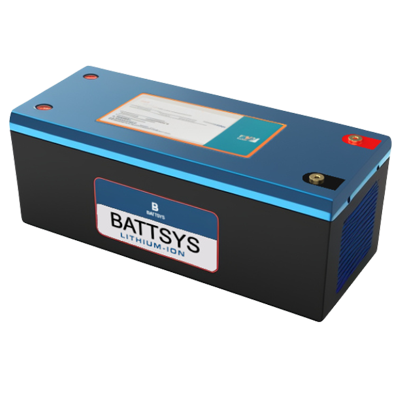What are the advantages of
lithium battery forklifts compared to lead-acid battery forklifts?
Lithium batteries have a wide range of applications, except for automotive electric vehicles, UPS power supply, energy storage, computer room communication, forklifts, iron towers, base stations and other scenarios can be applied. Compared with lead-acid batteries, the advantages of using lithium batteries on forklifts are more obvious. In the promotion of forklift electrification, lithium batteries are becoming the biggest competitor to traditional lead-acid batteries.
Currently, most lithium-ion battery vehicles are used in areas such as commuters, electric maintenance vehicles, sanitation and cleaning vehicles, and short distance buses. However, due to the fact that most of the operations of forklifts are carried out within the factory area, the work intensity and environment are fixed, and the work intensity is generally strong. Therefore, many advantages of lithium batteries can be reflected in electric forklifts.
1. Fast charging speed
Lithium batteries rely on their own chemical properties to meet faster charging speed requirements, with a charging time of only 2 hours from 10% to 100%. Lead acid batteries require 8-10 hours to charge from 20% to 100%.
2. Charging without memory
The memoryless charging characteristics of forklift lithium batteries enable them to be charged randomly and intermittently without affecting their lifespan. Users can efficiently utilize their work and rest time to replenish their battery, making it convenient for them to coordinate their work. During the charging and discharging process, lithium batteries experience minimal energy loss and maintain their rated output power regardless of the remaining battery capacity.
Lead acid batteries have charging memory, and if charged randomly or intermittently, it can seriously damage the battery and shorten its lifespan. Correct charging and discharging operation for lead-acid batteries: 20% -100% full charge and discharge; Regularly perform balanced charging. Not convenient for users to coordinate work.
3. Long service life
Lead acid batteries have an average cycle life of 1200 cycles (approximately 6000 hours of operation), while lithium iron phosphate batteries have a cycle life of over 4000 cycles (approximately 24000 hours of operation). In practical use, lithium iron phosphate batteries still have a capacity of over 65% after more than 4000 uses, while lead-acid batteries have a capacity of less than 50% after 1200 uses.
4. Wide discharge temperature range
Lithium batteries have good discharge performance at high or low temperatures between -20 ° C and 60 ° C. At -20 ° C, the discharge efficiency of lithium batteries is 80% to 90%, while lead-acid batteries have a discharge efficiency of less than 30%.
5. Improve operational efficiency
Lithium ion battery fast charging mode, 1-3 hour fast charging mode suitable for multi shift operations. Ready to charge and use eliminates the time and safety risks of battery replacement, provides stronger power, and can completely replace internal combustion forklifts. Technical monitoring of forklift and battery status to improve forklift management level.
6. Lithium batteries with special performance
Regarding lead-acid batteries, the use of lithium batteries on forklifts can also be achieved by changing the formula to derive various special performance lithium batteries, providing various power support for the innovative design of forklifts. If it can be made into a low-temperature lithium battery, its performance cannot be achieved by lead-acid batteries.

Development prospects of lithium batteries in the field of forklifts
Due to the unparalleled advantages of lithium batteries compared to traditional lead-acid batteries, their application in the forklift industry will inevitably have a strong impact on the original forklift market pattern. The emergence of lithium battery forklifts is the trend, and the rapid development of the logistics industry requires a forklift with short charging time, long usage time, stable performance, can withstand high-intensity operations, and high degree of automation and intelligence. The emergence of lithium batteries has added a bright spot to the development of the forklift industry.
The rapid development of
lithium-ion battery forklifts depends on national policy guidance, market and social demands. At present, the overall technical level of domestic lithium-ion forklifts is not high. In order for relevant companies to truly enter this field, they must break through some technical bottlenecks, such as battery consistency and power management system (BMS) compatibility.
